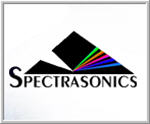I really don’t like waiting, especially when I can avoid it. Therefore, when I got tired of waiting for my computer recently I did something about it.
On SSH and passwords
The average ssh logon time consumes what feels like 3-4 seconds on my 2007-era machines. The delay has worsened since Ubuntu 0910, which now retrieves system information on logon (in its default form, nearly useless to me). I really like the idea of seeing useful info at logon time, but bottlenecking logon – the most common act that happens – for multiple seconds is unacceptable. If you’re like me, just use your own script instead of landscape:
apt-get remove landscape-common
I banged out some bash that runs nearly instantaneously and shows only what I actually care about, and it only took some lines in .profile. simple version:
echo 'df -h' >> ~/.profile PATH=$HOME/bin/
Finally for a really good one that totally pays for itself: think about how many times you type in a password. The net time saved by not having to spend a few seconds typing in your password each time is huge.
echo "PubkeyAuthentication yes" >> /etc/ssh/sshd_config
It’s called public key authentication in SSH, and it’s one of the best kept SSH secrets.


